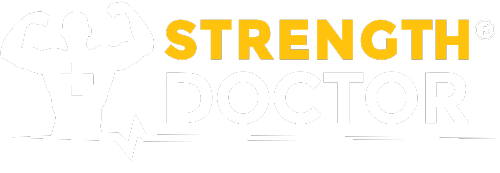Peptide therapy has become increasingly popular among athletes due to its potential to enhance recovery, boost performance, and reduce injury risks. However, like any trending medical or performance-enhancing treatment, peptide therapy is surrounded by misconceptions. These misconceptions often stem from misinformation, misunderstandings, or incomplete knowledge of how peptide therapy works. Let’s explore five common misconceptions about peptide therapy for athletes and provide clarity on this topic.

Table of Contents
Toggle1. Peptide Therapy is the Same as Steroid Use
Misconception:
Many people, including some athletes, believe that peptide therapy is just another form of steroid use, associating it with performance-enhancing drugs like anabolic steroids.
Reality:
Peptide therapy and steroid use are fundamentally different. While steroids are synthetic compounds designed to mimic hormones like testosterone, peptides are short chains of amino acids that naturally occur in the body and regulate a wide variety of physiological functions. Peptides specifically work by signaling your cells to perform certain tasks, such as stimulating the production of human growth hormone (HGH) or promoting tissue repair. In contrast, steroids often cause a direct alteration of hormonal balance, leading to a range of side effects, including liver damage, cardiovascular issues, and hormonal disruptions.
Unlike steroids, peptides are generally considered to be a safer option for athletes, especially when used under medical supervision. They can enhance recovery times and promote better overall health without the extreme risks associated with steroid use. However, not all peptides are performance-enhancing, and peptides must be administered correctly to avoid adverse effects.
2. Peptide Therapy Delivers Instant Results
Misconception:
Athletes sometimes expect immediate results after starting peptide therapy, believing that they will experience performance boosts or rapid recovery overnight.
Reality:
Peptide therapy works by gradually stimulating the body’s natural processes, and the results are not immediate. Athletes who use peptides for recovery, injury repair, or performance enhancement must have patience, as it can take weeks or even months before noticeable improvements occur.
Peptides like BPC-157 and TB-500, which are popular for recovery and injury repair, promote tissue healing at the cellular level. These peptides work by increasing blood flow, reducing inflammation, and encouraging the regeneration of injured tissues. However, because these processes take time, athletes may not feel an immediate difference in performance or recovery, especially if they are dealing with long-term injuries.
The expectation of instant results often leads to misuse or discontinuation of peptide therapy prematurely. Athletes must understand that consistency is key. With the right dosage and regular monitoring by a healthcare professional, peptide therapy can provide sustainable improvements in performance and recovery over time.
3. Peptide Therapy is Only for Muscle Building and Recovery
Misconception:
Many athletes assume that peptide therapy is solely intended for muscle growth and recovery. They believe peptides are only beneficial for bodybuilders or athletes seeking physical advantages.
Reality:
While peptide therapy is widely known for promoting muscle repair and enhancing recovery, it serves a much broader range of benefits for athletes. Peptides can support cardiovascular health, boost immune function, promote fat loss, improve cognitive performance, and even enhance sleep quality.
For instance, thymosin alpha-1, a peptide used in therapy, has been found to support immune function, making athletes less susceptible to illnesses that can hinder performance. Peptides like CJC-1295 and Ipamorelin stimulate the natural release of growth hormone, which not only helps with muscle building but also with fat loss, improving metabolism, and increasing energy levels.
Athletes who struggle with joint pain, inflammation, or mental fatigue can also benefit from peptides. For example, peptides like BPC-157 and TB-500 are used to repair ligaments, tendons, and even improve mental clarity. The wide range of applications for peptides makes them valuable to athletes in various sports, not just those focused on muscle mass.
4. All Peptides are Legal and Safe for Athletic Use
Misconception:
There is a misconception among some athletes that since peptides are naturally occurring in the body, all peptides must be legal and safe for athletic use without restrictions.
Reality:
The legality of peptide therapy for athletes is complex and varies depending on the peptide being used, the governing sports body, and the country in which the athlete competes. Some peptides are banned by organizations like the World Anti-Doping Agency (WADA) and other sports federations due to their performance-enhancing potential. For example, growth hormone-releasing peptides (GHRPs) are prohibited in most professional sports because of their ability to artificially boost HGH levels and provide unfair advantages.
Moreover, while peptide therapy can be safe when administered under the supervision of a qualified healthcare professional, not all peptides are created equal. Some peptides may be of low quality, sourced from unregulated labs, or sold illegally online. The improper use or purchase of these unregulated peptides can lead to adverse health effects, including infections, allergic reactions, or worse, long-term organ damage.
Athletes need to be aware of the regulatory guidelines set by their respective sports organizations and work with a medical professional who can provide legal, safe, and effective peptide therapy options.
5. Peptide Therapy is a Quick Fix and Can Replace Proper Training
Misconception:
Some athletes may view peptide therapy as a shortcut to success, assuming it can replace the hard work and discipline of regular training, proper nutrition, and recovery strategies.
Reality:
Peptide therapy is not a magic bullet that can substitute for the fundamentals of athletic performance. While peptides can accelerate recovery, enhance tissue repair, and boost performance to some extent, they are most effective when combined with a solid training regimen, proper nutrition, and adequate rest.
In fact, peptides work best in individuals who are already taking care of their bodies. For example, peptides that stimulate growth hormone release or enhance collagen production require the athlete to maintain a healthy diet and training routine for maximum benefits. Without proper exercise and nutrition, the effects of peptide therapy may be minimal or even ineffective.
Athletes who believe peptide therapy will give them an edge without putting in the work often find themselves disappointed. To truly benefit from peptides, athletes must treat them as a complement to their existing training and recovery practices rather than a replacement.
Conclusion
Peptide therapy offers athletes numerous potential benefits, from faster recovery times to enhanced performance. However, it is essential to approach this treatment with a clear understanding of what peptides are and how they work. Misinformation and misconceptions about peptide therapy can lead to unrealistic expectations, improper use, and even legal troubles for athletes.
Experience Optimal Recovery with Platelet-Rich Plasma (PRP) for Sports Injuries in Tempe, Arizona at The Strength Doctor
Have you sustained a sports injury and are seeking a natural way to accelerate healing and recovery? At The Strength Doctor, Platelet-Rich Plasma (PRP) therapy is designed to promote your body’s recovery by harnessing its own healing powers. This cutting-edge treatment uses your body’s platelets to support tissue repair, reduce inflammation, and enhance recovery, helping you get back to your active lifestyle faster.
What makes this approach exceptional is Dr. Clark’s commitment to personalized care. With dedicated attention, Dr. Clark creates a PRP treatment plan uniquely tailored to your specific injury and recovery goals. In addition to the treatment itself, comprehensive health evaluations ensure you are empowered to make informed decisions about your recovery journey. Every service at The Strength Doctor is rooted in the highest standards of quality, demonstrating an unwavering commitment to your well-being and long-term health.
Are you ready to accelerate your recovery from sports injuries? Discover the powerful benefits of PRP therapy at The Strength Doctor. Contact us today to schedule your appointment and take the next step toward optimal recovery and performance. Don’t wait—experience the transformative effects of PRP with The Strength Doctor!
Disclaimer
The materials available on this website are for informational and entertainment purposes only and not to provide medical or legal advice. You should contact your physician and attorney for advice concerning any particular issue or problem. You should not act or refrain from acting based on any content included in this site without seeking legal or other professional medical advice. The information presented on this website may reflect only some current legal or medical developments. No action should be taken in reliance on the information on this website. We disclaim all liability concerning actions taken or not taken based on any or all of the contents of this site to the fullest extent permitted by law.
